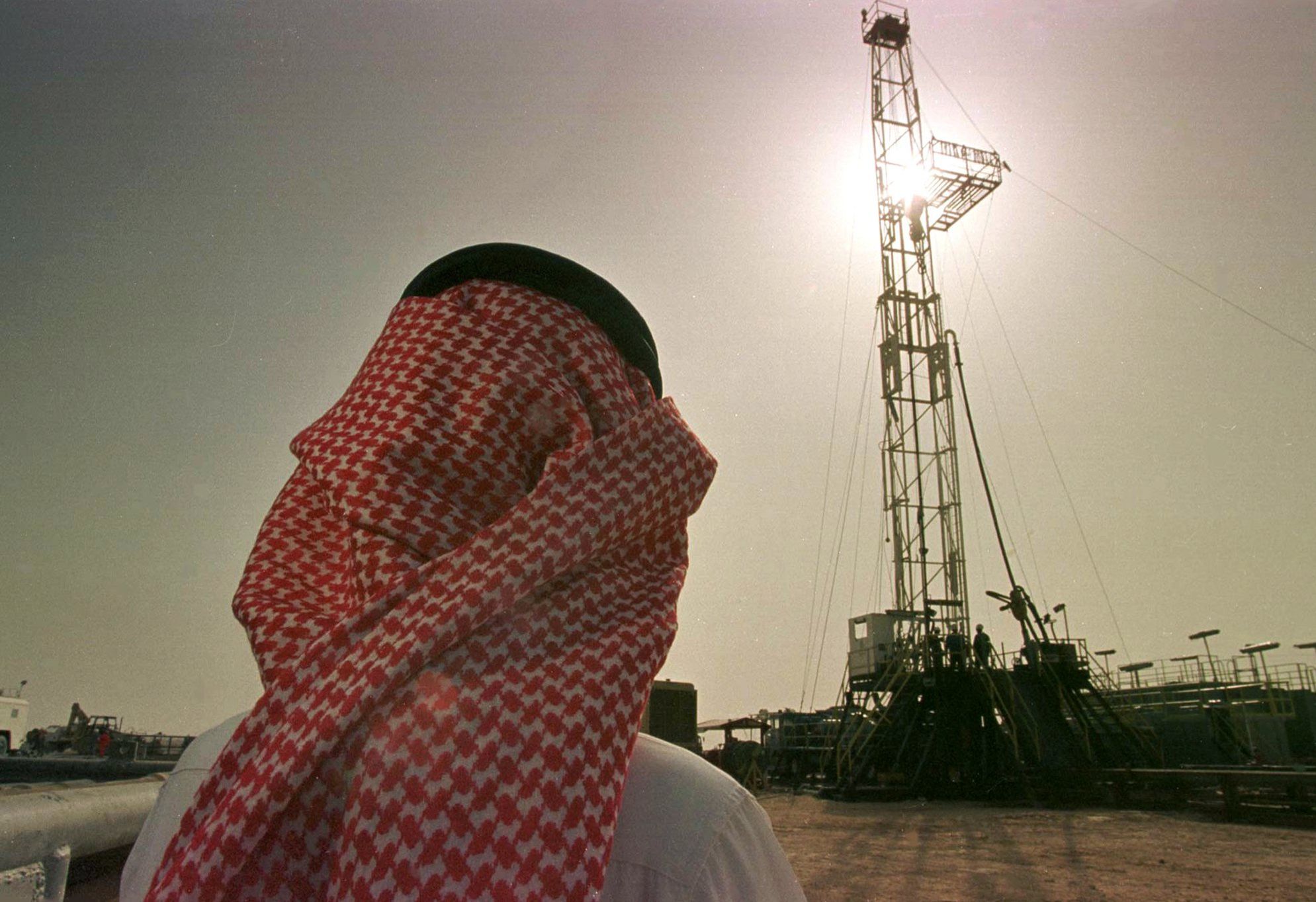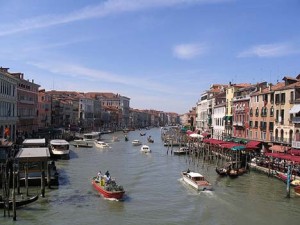
Khaled al Otaiby, an official of the Saudi oil company Aramco watches progress at a rig at the al-Howta oil field near Howta, Saudi Arabia, on Feb. 26, 1997. Energy is the big strand in a web of U.S.-Saudi economic ties that has grown in the six years since an American-led army rolled back Iraqi aggression in the Persian Gulf. (AP Photo/John Moore)
It would seem everyone, except the US President, is firmly behind trying to reduce the world’s carbon footprint. Two of the planet’s largest suppliers of fossil fuel have recently announced big investment plans for the use of solar power in their respective countries.
In Dubai:
According to the Bloomberg news service, Dubai is planning to invest £770 million pounds in solar power technology to provide 200 megawatts of electricity during the hours 4pm through 10am – yep night time. Unlike the standard method of trying to maintain reduced power output through the night using normal solar panels and storage batteries, the Concentrating Solar Power (CSP) operates using mirrors and molten salt.
CSP is not a new concept, and currently there are three main types of CSP energy systems. The Trough system uses U-shaped parabolic reflectors which reflect the sun’s rays to a grid of oil filled pipes in the centre of the reflector. The Dish system uses reflective satellite shaped dishes which track the sun, reflecting the rays to a receiver which is an integral part of the dish, and the third system is the Power Tower system, the technology being constructed in Dubai.
Molten salt has the ability to absorb the sun’s rays and reach temperatures of almost 500 degrees Celsius. Not only will molten salt reach high temperatures, it also has the capability to store this heat for a considerable period of time. A grid of flat mirrors is positioned to reflect the sun’s rays at what is called the receiver. In this particular case, the receiver is the molten salt. As the salt’s temperature increases throughout the day, at a fixed time, water is added which begins to produce steam. This steam is then used to power the turbines and produce night time electricity.
Although the project is not scheduled for completion until 2023, the Saudi Arabian company overseeing the work has completed similar solar energy generators in South Africa and Morocco. Already the debate between advocates of CSP and photovoltaic solar panels using storage batteries is heating up regarding which is the most cost effective system.
Saudi Arabia:
Talking of solar panels; according to the Financial Times mobile phone news, Saudi Arabia has announced it will shortly be issuing tenders for the construction of more than £40 billion worth of solar and wind energy projects spread over the next 12 years, as well as considering the building of the country’s first nuclear power station. It is also building a new green city called Neom.
Although this announcement projects Saudi Arabia as an environmentally conscious nation, much of the decision is thought to stem from the fact the country is being hard hit by the downturn in oil revenue. Increasing concern over climate change and the fact the country has already had to draw hard on its reserves has exacerbated its concerns for the future of fossil fuel energy.
For whatever its reasons, a move toward renewable energy can only be a good thing. Until overtaken by Russia earlier this year Saudi Arabia was the world’s largest supplier of oil. It is also a major producer of carbon dioxide due to its high reliance on fossil fuel for it energy production. With the move to renewables, a whole new jobs market will also be created while improving the environment for the Saudi people.
Although tenders have yet to be issued, a price war between the more popular solar panels and battery powered generation, and the mirror and salt steam generation, seems set to take the stage. Currently CSP is considered the cheaper option. However, increased mass production of photovoltaic panels means the cost is dropping. As with mobile phones and electric cars, battery power storage technology is improving all the time. Supporters of solar panels believe they will remain the system of choice for most solar energy projects.
While the move to solar and wind energy production has been met with universal approval, not so the possibility of nuclear power. Although countries like France and Finland continue to rely heavily on nuclear power, others are reducing their reliance on nuclear reactors. Until such issues as the safe removal and long term storage of nuclear waste are satisfactorily addressed, nuclear power in Saudi Arabia will remain just a talking point.




